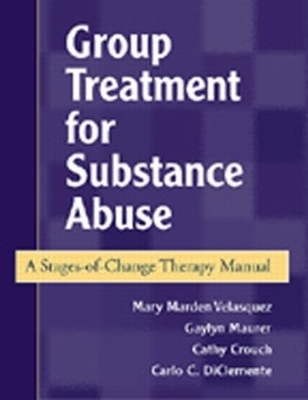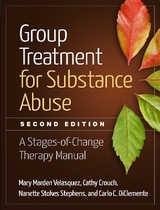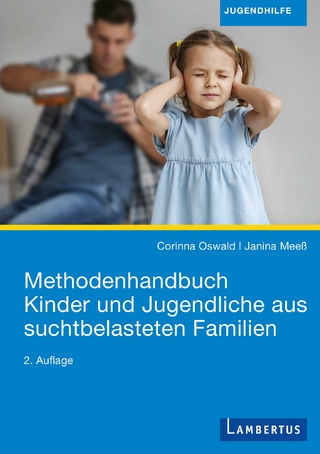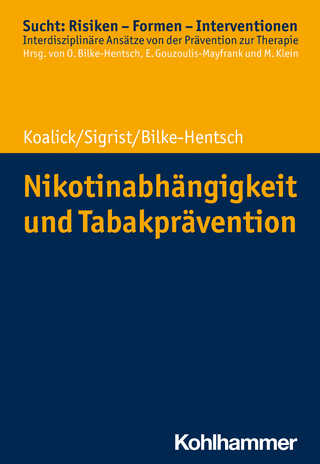
Group Treatment for Substance Abuse, First Edition
Guilford Publications (Verlag)
978-1-57230-625-7 (ISBN)
- Titel erscheint in neuer Auflage
- Artikel merken
This practical manual presents a 29-session treatment program designed to engage, motivate, and stimulate processes of change in clients at all stages of recovery. The program is based on the research-supported transtheoretical model of behavior change. The manual describes skills-building activities and interventions that are likely to be most effective with clients as they cycle from the earlier stages of change/m-/precontemplation, contemplation, and preparation/m-/to the later stages, action and maintenance. Each of the structured sessions is presented in a consistent, highly accessible format, including a clear rationale, summary of objectives, and overview of the main activities that will take place. Step-by-step guidelines for implementation are provided, as well as strategies for using a motivational interviewing style. The manual is complete with all needed handouts and exercise forms, ready to photocopy and distribute to clients. Ideal for use with groups, the approach can easily be adapted to individual treatment.
Mary Marden Velasquez, PhD, is Associate Professor in the Department of Family Practice and Community Medicine at the University of Texas-Houston Medical School. Gaylyn Gaddy Maurer, MA, is an outreach counselor at the University of Houston Campus Recreation and Wellness Center. Cathy Crouch, MSW, is Director of Programs with the SEARCH Homeless Project in Houston. Carlo C. DiClemente, PhD, is Professor and Chair of the Department of Psychology at the University of Maryland, Baltimore County.
Introduction I. How to Help People Change 1. How People Change: The Transtheoretical Model 2. Strategies for Facilitating Change 3. Putting It All Together: Setting Up and Carrying Out the Intervention II. Thinking about Changing Substance Use P/C/P Sequence: Precontemplation-- Contemplation--Preparation *Session 1: The Stages of Change Change Process Objective: Consciousness Raising *Session 2: A Day in the Life Change Process Objective: Consciousness Raising *Session 3: Physiological Effects of Alcohol Change Process Objective: Consciousness Raising *Session 4: Physiological Effects of Drugs Change Process Objective: Consciousness Raising *Session 5: Expectations Change Process Objective: Consciousness Raising *Session 6: Expressions of Concern Change Process Objective: Self-Reevaluation, Dramatic Relief *Session 7: Values Change Process Objective: Self-Reevaluation *Session 8: Pros and Cons Change Process Objective: Decisional Balance *Session 9: Relationships Change Process Objective: Environmental Reevaluation *Session 10: Roles Change Process Objective: Environmental Reevaluation *Session 11: Confidence and Temptation Change Process Objective: Self-Efficacy *Session 12: Problem Solving Change Process Objective: Self-Efficacy *Session 13: Setting a Goal and Preparing to Change Change Process Objective: Self-Liberation *Session 14: Review and Termination III. Making Changes in Substance Use A/M Sequence: Action--Maintenance *Session 1: The Stages of Change Change Process Objective: Consciousness Raising *Session 2: Identifying "Triggers" Change Process Objective: Stimulus Control *Session 3: Managing Stress Change Process Objective: Counterconditioning *Session 4: Rewarding My Successes Change Process Objective: Reinforcement Management Session 5: Effective Communication Change Process Objectives: Counterconditioning, Reinforcement Management *Session 6: Effective Refusals Change Process Objectives: Counterconditioning, Reinforcement Management *Session 7: Managing Criticism Change Process Objectives: Counterconditioning, Reinforcement Management *Session 8: Managing Thoughts Change Process Objectives: Stimulus Control, Counterconditioning, Reinforcement Management *Session 9: Managing Cravings and Urges Change Process Objectives: Stimulus Control, Counterconditioning, Reinforcement Management *Session 10: New Ways to Enjoy Life Change Process Objectives: Stimulus Control, Counterconditioning, Reinforcement Management *Session 11: Developing an Action Plan Change Process Objective: Self-Liberation *Session 12: Recommitting after a Slip Change Process Objective: Self-Liberation *Session 13: Social Support Change Process Objective: Helping Relationships *Session 14: Identifying Needs and Resources Change Process Objective: Social Liberation *Session 15: Review and Termination Change Process Objectives: Self-Efficacy, Reinforcement Management *Appendix: Professional Contacts and Suggested Resources
| Erscheint lt. Verlag | 6.9.2001 |
|---|---|
| Verlagsort | New York |
| Sprache | englisch |
| Gewicht | 554 g |
| Themenwelt | Medizin / Pharmazie ► Medizinische Fachgebiete ► Suchtkrankheiten |
| Sozialwissenschaften ► Soziologie | |
| ISBN-10 | 1-57230-625-4 / 1572306254 |
| ISBN-13 | 978-1-57230-625-7 / 9781572306257 |
| Zustand | Neuware |
| Haben Sie eine Frage zum Produkt? |
aus dem Bereich



